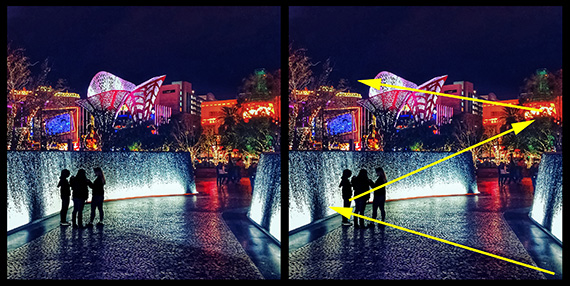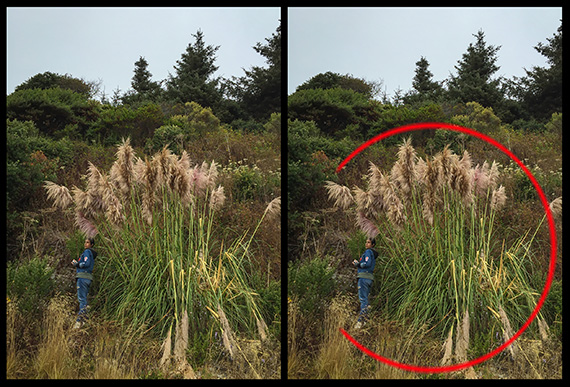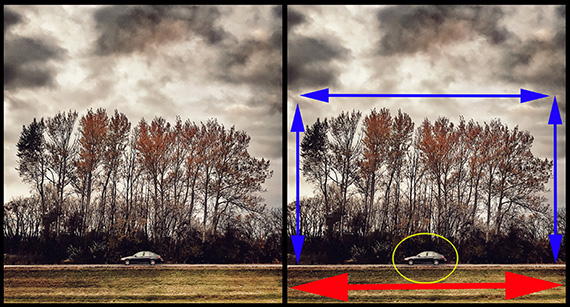This article is based on concepts from The Photography Action Cards if you want to dig deeper for further training.
Most photographers have heard of the S curve, and this example photo is a literal example of the concept.

Photo by Ashley Knedler
Fun Fact
The S curve did not originate with photography. It dates back to 4th-century Greek sculpture and was initially called the Praxitelean curve. Praxitelean was the first artist credited with using the S curve in his sculpture artwork.
It later became a tool used by the old master painters of central and southern Europe.
Eventually, it was finally picked up by—you guessed it! Photographers!
We now have several variations of this tool: the S curve, Z curve and the C curve. These artistic concepts are used in photography, painting, graphic design and illustration—any visual art medium.
Quick Tip
These curves don’t have to be literal, like the road in the first example picture. They can be created by using color contrast in your photographs.
S Curve

Photograph by Kent DuFault
The path in this photograph isn’t apparent, due to the angle of the camera. However, color contrast between the pavement and the surrounding landscape has allowed and S curve to emerge as a composition element.

Photograph by Kent DuFault
On the left is a photograph of the Hoover Dam as it appeared to the eye. The S curve is there, but it isn’t overly dramatic.
On the right, after using post-production to increase the color contrast, the S curve pops from the surrounding landscape.
Z Curve

Photograph by Kent DuFault
The Z curve is a derivative of the S curve. It is defined by sharper angles, like the letter Z.
Contrast, tone and color can create a path through a photo.
When you come upon a scene that you wish to photograph, close your eyes for a moment. Clear your mind.
When you open your eyes, note what you see first, where your eyes travel to second and, finally, where they come to rest. This hack can help you map the path of your intended composition.
In the example above, my technique told me that I envisioned was a Z path. This knowledge helped me choose the right lens and the correct camera point-of-view to establish my composition.
C Path

Photograph by Kent DuFault
A properly executed C path is a bit more challenging to learn. It can comprise color contrast, shape, texture or even the lighting and shadows.

Photograph by Kent DuFault
Graphic designers first championed the C path. It left negative space for other elements to be inserted, such as this magazine cover.

Photograph by Kent DuFault
It’s essential to recognize that these paths don’t always travel in an expected and predictable direction. The S curve might be sideways going from left to right or vice versa, for example.
In this last example image, the C curve faces downward. It is created by color contrast, format and negative space.
About the Author:
Kent DuFault is an author and photographer with over 35 years of experience. He’s currently the director of content at the online photography school, Photzy.
For Further Training, Deal Ending Soon:
65 beautifully designed & printable Photography Action Cards are now available that will give you over 200 photography assignments, covering everything you can imagine. They are currently 88% off today if you want to try them out.
These Action Cards discuss a photographic topic, provide you with suggested considerations, and give you specific photographic assignments. They’ll kick you out of the “nest” to go have a personal discovery experience all on your own. P.S. try the coupon code picturecorrect at checkout for even more of a discount which ends soon.
Found here: The Photography Action Cards at 88% Off
Go to full article: Using S-Curves and Color Contrasts in Your Photography
What are your thoughts on this article? Join the discussion on Facebook
PictureCorrect subscribers can also learn more today with our #1 bestseller: The Photography Tutorial eBook
The post Using S-Curves and Color Contrasts in Your Photography appeared first on PictureCorrect.
from PictureCorrect https://ift.tt/3taOfsK
via IFTTT







0 kommenttia:
Lähetä kommentti